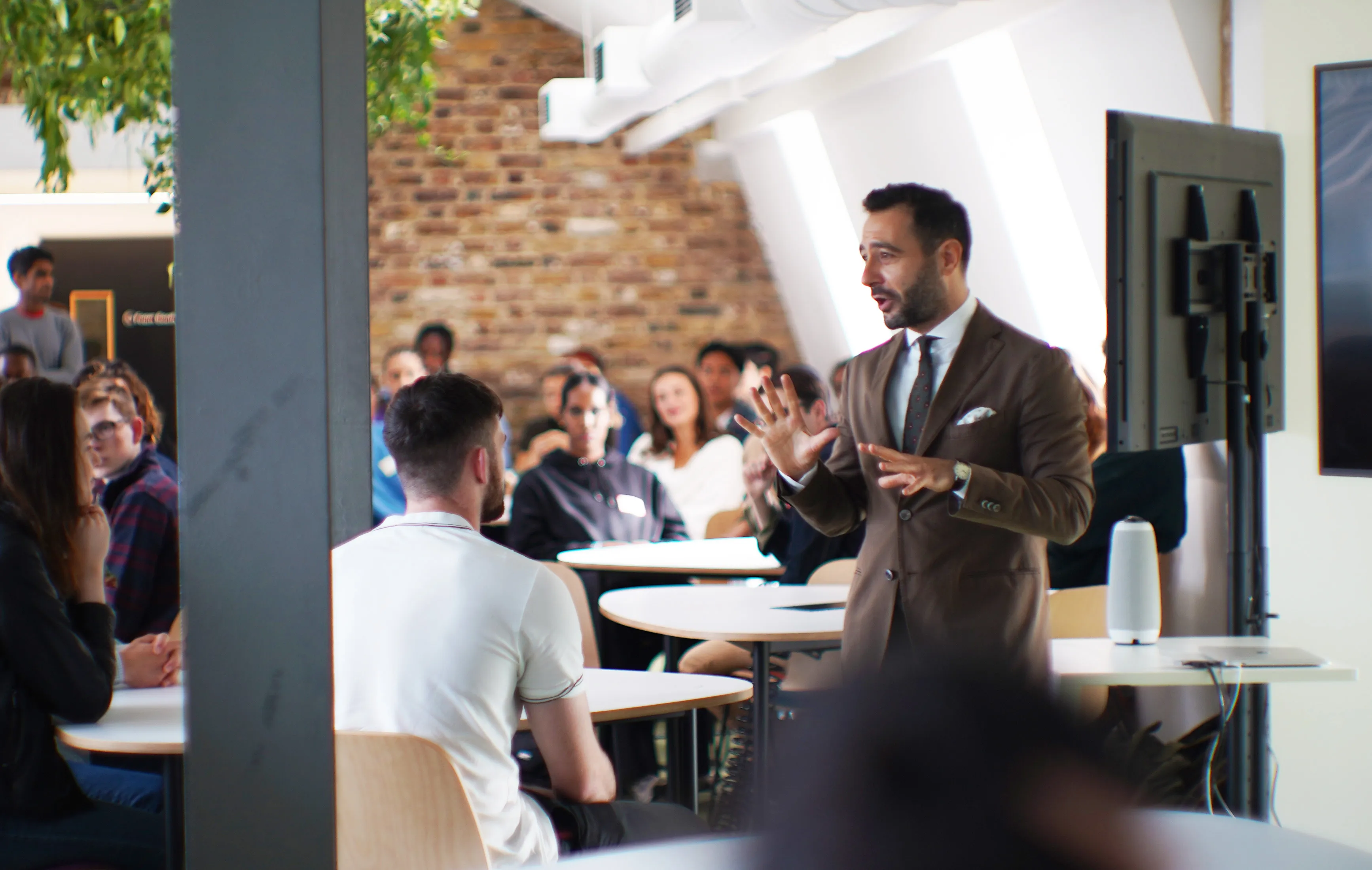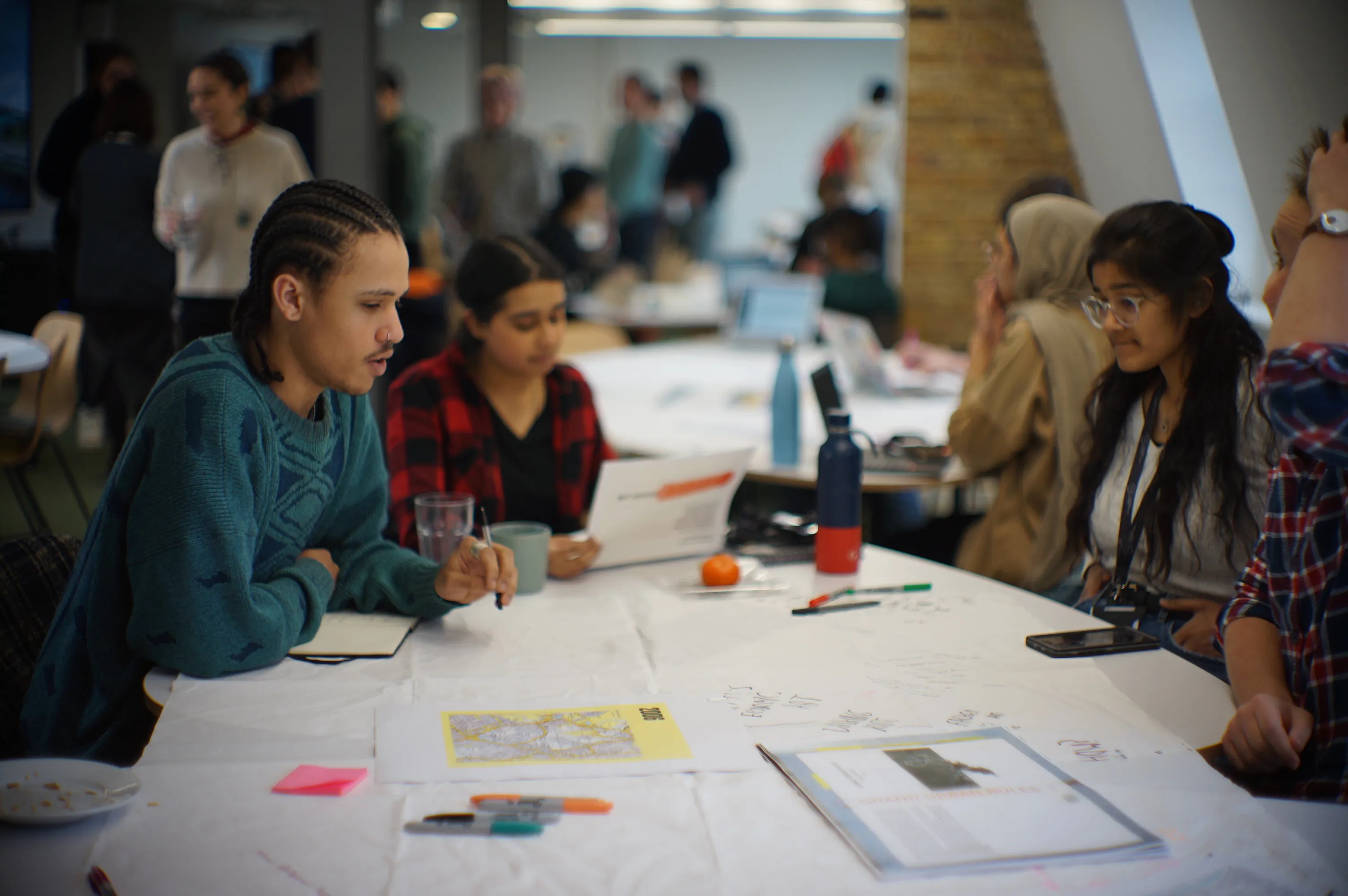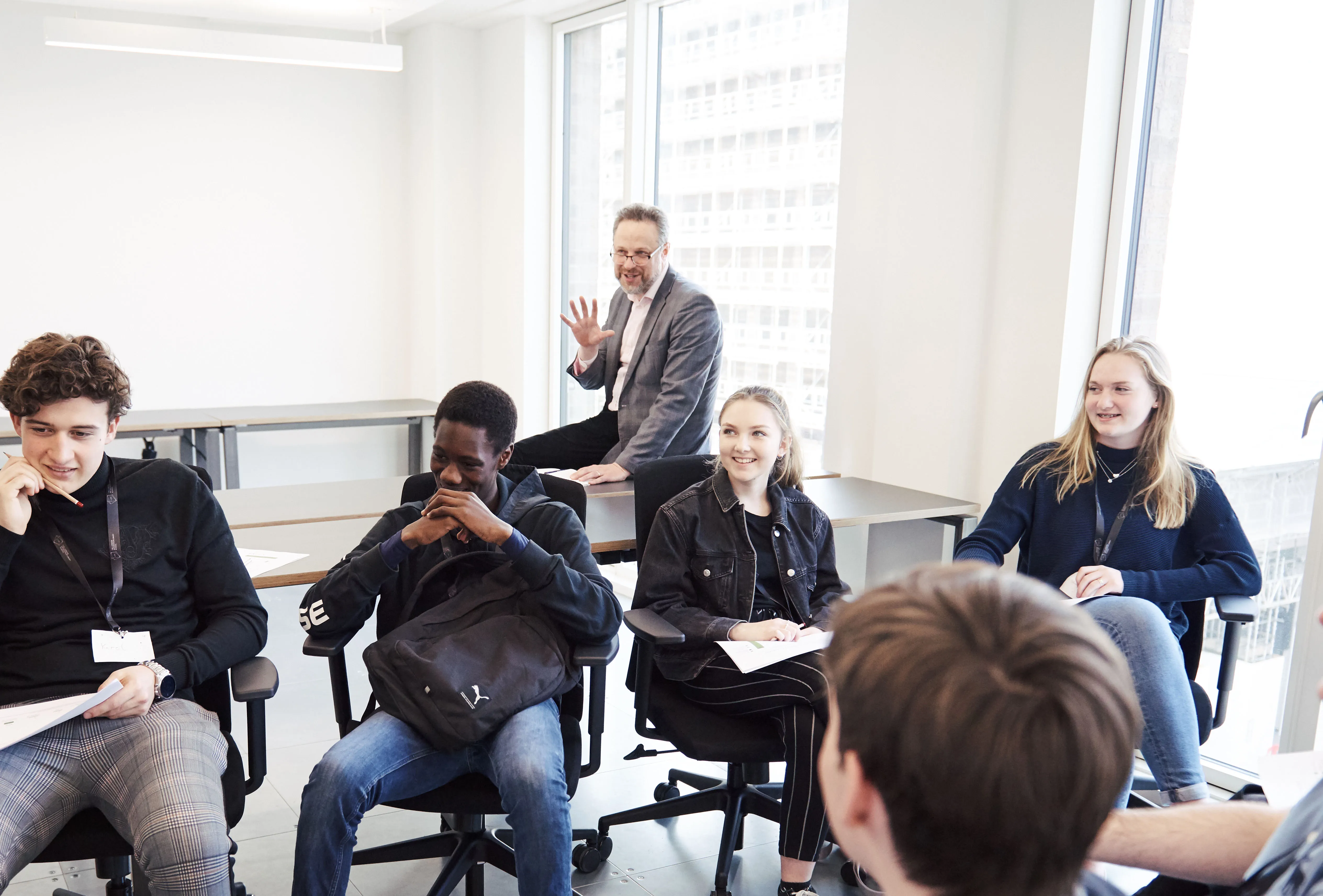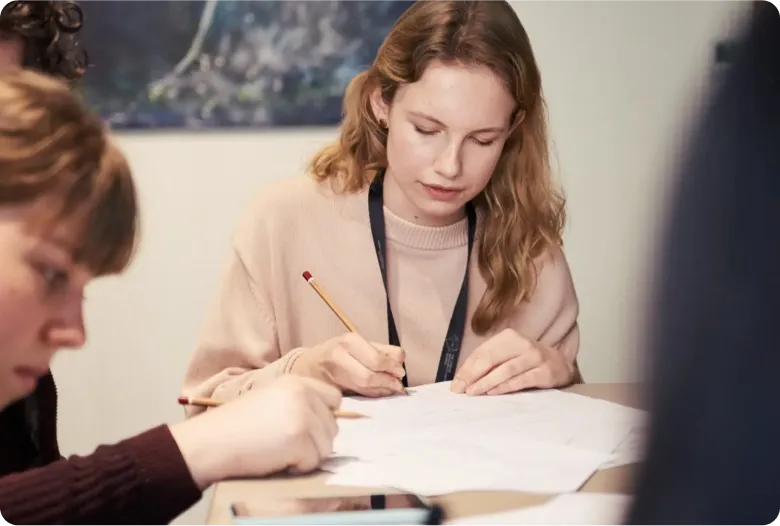


The faculty

.webp)
.webp)
.webp)
.webp)
.webp)
.webp)
.webp)
.webp)
.webp)
.webp)
.webp)
.webp)
.webp)
At LIS you’ll have access to a diverse group of academics, who are extremely passionate about the art of complex problem-solving. So much so, some have left positions in some of the world’s leading higher education institutions, such as Harvard, Cambridge and Oxford, to join this new and radical university in the heart of East London.
Imagine being taught by philosophers, epidemiologists, artists, journalists, behavioural scientists, and mathematicians, as well as entrepreneurs - just to name a few! At the helm of this learning experience is Professor Carl Gombrich, our Director of Teaching and Learning.
.webp)

Biochemistry, epidemiology, linguistics, computer science, neuroscience, engineering, mathematics & statistics, data science

Economics, political science, anthropology, sociology, psychology, law, international relations
.webp)
Photography, creative writing, philosophy, design, performing arts, literature, theology

Sitting in endless lectures is boring. We know that it is not the best way to learn, all the educational science tells us that. So we have put together a range of different learning settings so that you will learn in the most engaging and effective way.
Expect to see some of the following class formats during your course.
1
Tutorials
Tutorials either take place one-to-one or in small groups. They are less formal than lectures, highly interactive, and academically rigorous.
2
Seminars
Seminars bring together small groups of students to hone in on a particular topic. During seminars, students might review case studies, journal articles, and other relevant literature, or explore exercises such as problem structuring (e.g. actor-network diagrams and ‘issue trees’).
3
Flipped classroom lessons
Flipped classroom lessons are when students absorb materials in advance, before coming to class ready for face-to-face discussions on the topic. This is an intentional flip to student-centred learning, granting students greater control over the flow of conversation.
4
Masterclasses
Masterclasses are given by external experts on particular topics. Students may be asked to prepare a piece of work in advance, ready for the expert to provide feedback. At LIS, masterclasses may also involve interaction with the knowledge and digital economies (e.g. with industry leaders).
5
Workshops
Workshops entail working in small groups to produce something such as a piece of artwork, a report, or a presentation. Workshops are great environments for students to try out new methods and fail in safe situations.

Sign up for our newsletter
Don't miss out on important updates including course information, new announcements, Open Day dates and the latest LIS news.





.svg)
